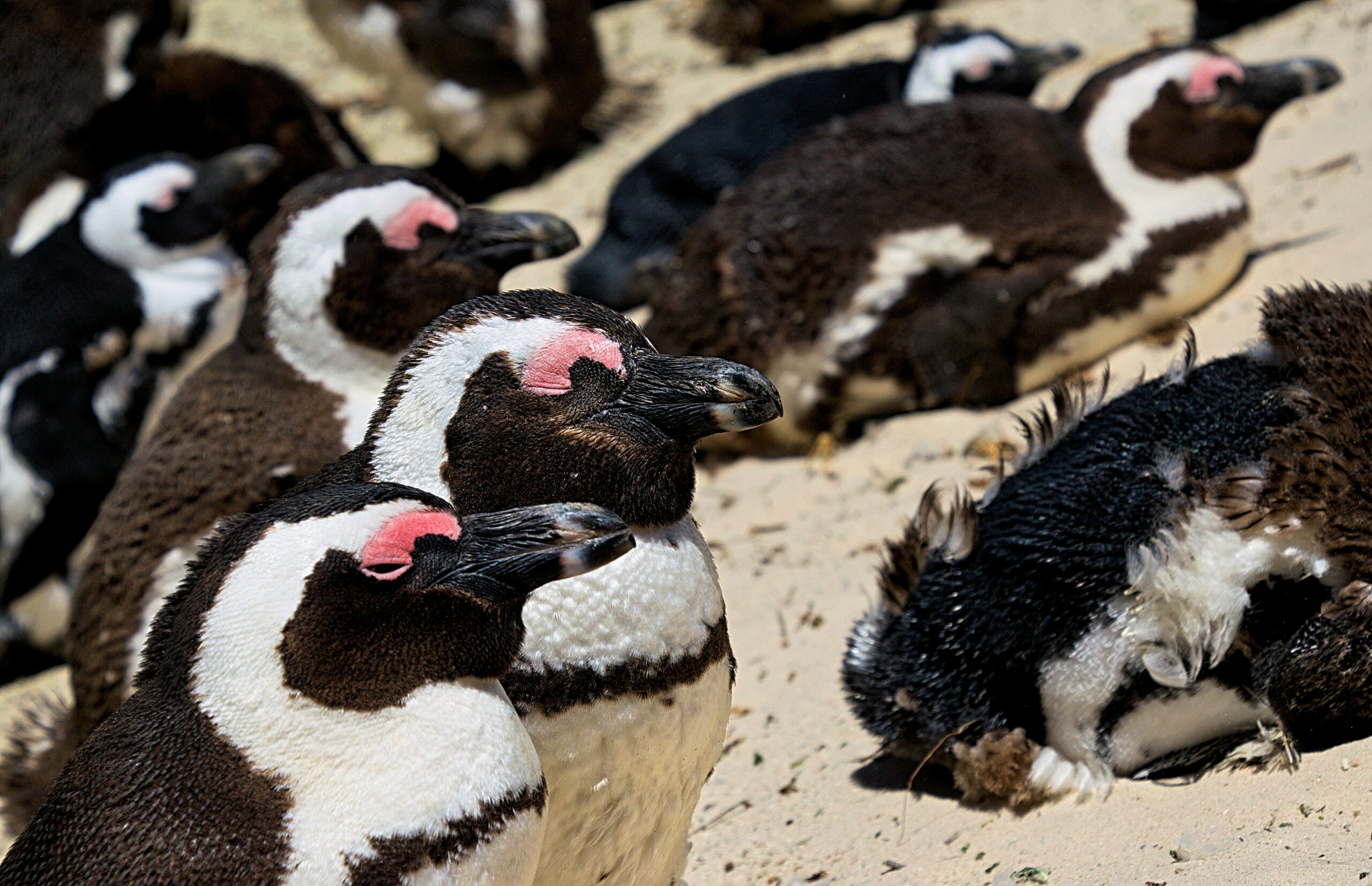Protecting African Penguins

The African Penguin is Africa’s only extant penguin and is endemic to both Namibia and South Africa. This charismatic species has suffered an enormous reduction from over one million pairs in the 1920s, to numbers of approximately 8750 pairs in 2023. The decline is cause for grave concern. African Penguins were uplisted to “Critically Endangered” by the International Union for Conservation of Nature in October 2024, and are also listed under the Threatened or Protected Marine Species Regulations published under the National Environmental Management: Biodiversity Act, Act 10 of 2004.
African Penguins face a variety of cumulative pressures, including food scarcity (due to competition with commercial small pelagic fisheries), breeding habitat modification, human disturbance in colonies, oil spills, disease outbreak, predation, and maritime industries such as oil and gas exploration. Significantly, recent studies have shown that African Penguin populations on St Croix Island in Algoa Bay have declined a dramatic 85% since the advent of ship-to-ship bunkering in Algoa Bay in 2016.
Protecting African Penguins is not just important for the species itself, but for the whole ecosystem of which they are a critical part. African Penguins are considered sentinels of ecosystem health, playing an important role in the functioning of marine ecosystems. Thriving African Penguin colonies will give some indication of the status of other marine top predators that target the same prey and, more broadly, to the relative condition of the marine ecosystem.
The Centre is working with BirdLife South Africa and SANCCOB to address the most urgent threats to African Penguins. In 2024, the Centre launched landmark litigation against the Minister of Forestry, Fisheries and the Environment, in an effort to secure African Penguins’ access to Sardine and Anchovy around their key island breeding colonies. The Centre is also advocating for better regulation of ship-to-ship bunkering and other potentially harmful activities in Algoa Bay, alternatively that these activities should be prohibited because of their significant environmental impacts.